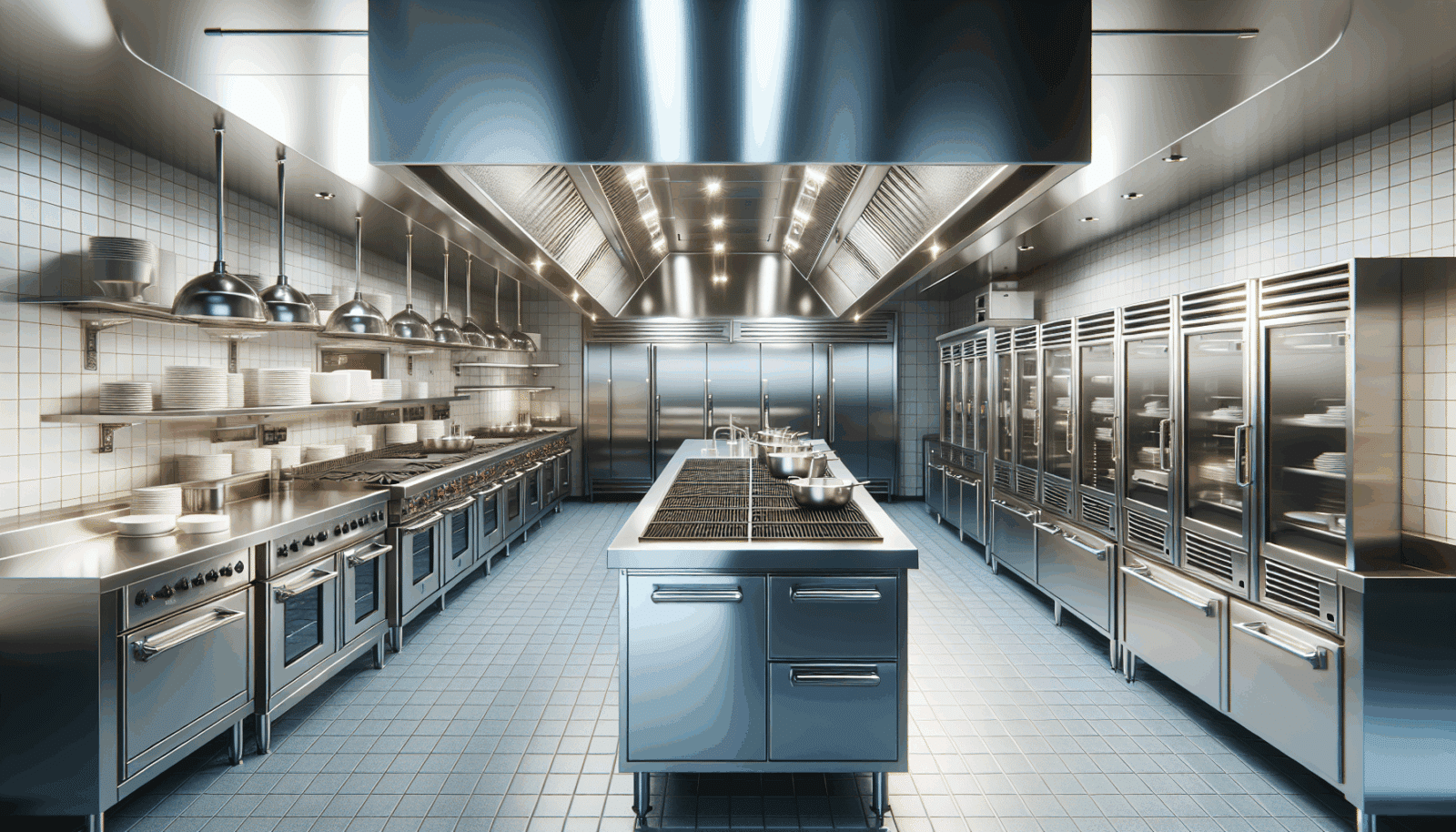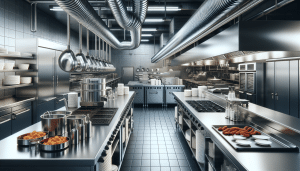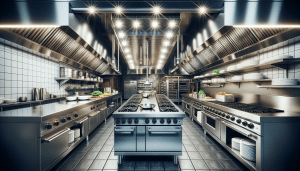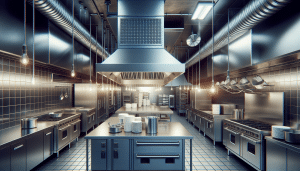At Utah Hood Cleaning, we understand the challenges of maintaining a safe and compliant Commercial kitchen. One of the biggest concerns for restaurant owners is avoiding penalties related to hood fire codes. But worry not! This comprehensive guide will steer you towards compliance, helping you create a safer environment for your business and staff. Let’s dive in!
Understanding Fire Code Regulations
Navigating the intricate world of fire codes can be daunting. Yet, understanding these regulations is essential for every kitchen owner. These rules are not only there to ensure safety but also to keep your business running smoothly without interruptions.
The main reason fire codes exist is to prevent fires from spreading rapidly, thereby protecting both property and lives. Complying with these codes can sometimes feel like a lot of work, but once you grasp the basics, you’ll find it much easier. We’re here to walk you through the essential steps.
Why Compliance Matters
Compliance isn’t just about avoiding penalties; it’s about ensuring safety. Following the fire codes can significantly reduce the risk of kitchen fires, which are more common than one might think.
Moreover, staying compliant can save you money in the long run. Imagine the costs involved if a fire were to damage your kitchen. Insurance might cover some expenses, but not all. Plus, any legal fallout from non-compliance could be costly and damaging to your reputation.
Inspection Frequency
How often should your commercial kitchen’s Exhaust system be inspected? This can vary based on the type of cooking and volume of Grease build-up. Knowing this schedule is crucial for maintaining compliance.
Routine inspections help identify potential hazards and ensure that every part of your system functions correctly. Missing an inspection can lead to a failed compliance check, which in turn might result in penalties. Let us handle the scheduling so you don’t have to worry.
The Components of a Hood System
Your kitchen hood system is composed of several key components, each playing a vital role in fire prevention. Knowing these components can help you better maintain your system.
First, there’s the hood itself, designed to capture grease, smoke, and fumes. Then there’s the ductwork, which channels these away from the kitchen. Finally, the Exhaust fan and fire suppression system work together to keep everything safe. We ensure each component is functioning optimally.
Fire Suppression Systems
A robust fire suppression system is an essential part of any commercial kitchen’s safety measures. Understanding how these systems work can help you respond effectively in the event of a fire.
These systems are designed to automatically detect and suppress fires, preventing them from spreading. Regular maintenance checks are crucial to ensure the system functions when you need it most. Our team is here to keep your suppression system in top shape.
Regular Maintenance Practices
Adopting regular maintenance practices is like a shield protecting your kitchen from potential fire hazards. Such practices ensure everything runs smoothly and efficiently.
Many elements demand your attention, including the filters, ducts, and suppression systems. Engaging professionals for thorough and regular maintenance ensures nothing is missed. Let us help you establish a routine that aligns with your operations.
Common Mistakes to Avoid
Here are some common pitfalls that many kitchen owners encounter. Avoiding these can save you time, money, and stress.
- Ignoring Regular Cleaning: Overlooking routine cleaning allows grease build-up, which increases fire risks. Regular cleaning is the first line of defense against fires.
- Missing Inspections: Skipping inspections leads to unchecked issues, compromising safety. Keeping up with inspections ensures all systems are go.
- Overlooking Suppression Systems: Neglecting these systems means they’re not ready in case of a fire. Regular checks confirm they are operational and effective.
- DIY Maintenance: Attempting to maintain systems yourself can lead to mistakes. Professionals have the expertise to keep everything compliant and safe.
- Poor Record Keeping: Failing to document maintenance and inspections can result in compliance issues. Good records prove compliance and help track maintenance.
Training Your Staff
A well-trained staff is paramount. They are the ones on the front lines, and their actions contribute significantly to maintaining safety and compliance.
Training should include proper cleaning techniques, recognizing potential hazards, and understanding how to respond to emergencies. Regular training keeps safety top of mind and empowers your team to act swiftly and effectively.
Choosing the Right Service Provider
Selecting the right service provider is crucial. You need someone who understands your needs and the local fire codes intricately. The right provider will ensure your systems are in top form and help you avoid costly penalties.
Look for a service with experience, proper certification, and a good reputation. We pride ourselves on delivering top-notch service to our clients, offering peace of mind with every visit.
Final Thoughts
Avoiding penalties while keeping your kitchen safe is a priority. We’ve walked you through key aspects to consider for compliance. For personalized assistance, don’t hesitate to Contact Us.
We’re here to help you every step of the way, ensuring your commercial kitchen is both safe and compliant. For expert assistance, contact us by phone at 801-853-8155 or Request a Free Quote.




